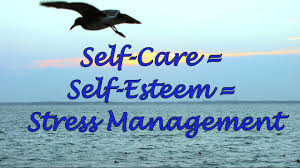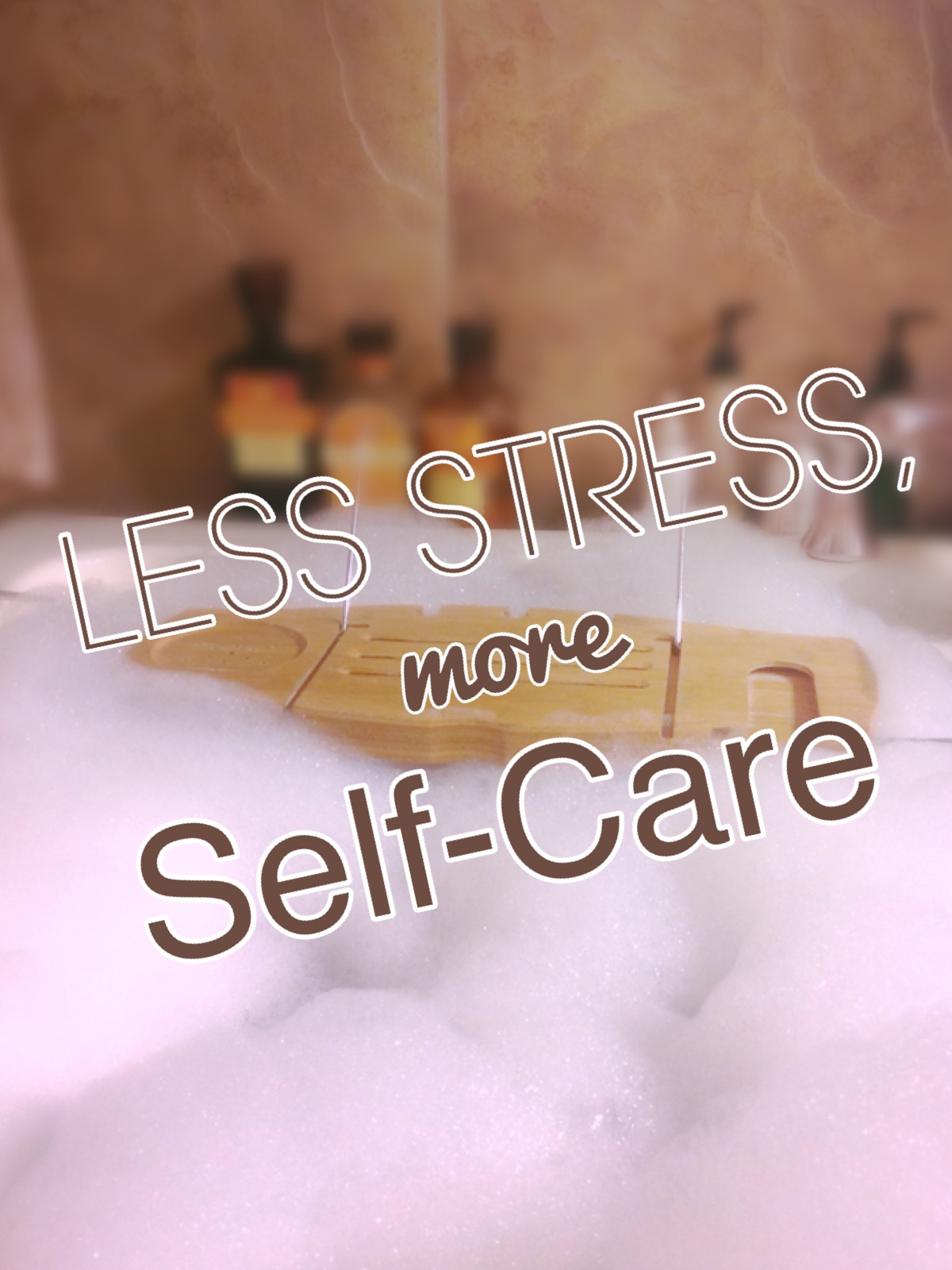 Stress can be defined as feeling overloaded, wound up tight, feeling tense and worried. Everyone experiences stress at times. Sometimes stress helps to motivate us to get a task finished, or perform well. However, stress can also be harmful if we become over-stressed. Feeling over stressed affects the ability to function properly in day to day life.
Stress can be defined as feeling overloaded, wound up tight, feeling tense and worried. Everyone experiences stress at times. Sometimes stress helps to motivate us to get a task finished, or perform well. However, stress can also be harmful if we become over-stressed. Feeling over stressed affects the ability to function properly in day to day life.
When a stressful event occurs, our bodies respond by activating the nervous system and releasing hormones such as adrenalin and cortisol. These hormones cause physical changes in the body which help us to react quickly and effectively to get through the stressful situation. This is sometimes called the ‘fight or flight’ response. The hormones increase our heart rate, breathing, blood pressure, metabolism and muscle tension. Our pupils dilate and our perspiration rate increases. While these physical changes help us try to meet the challenges of the stressful situation, they can cause other physical or psychological symptoms if the stress is ongoing and the physical changes don’t settle down.
Symptoms of stress
• Headaches, body aches and pains
• Sleep disturbance, insomnia
• Upset stomach, indigestion, diarrhoea
• Anxiety
• Anger, irritability
• Depression
• Fatigue
• Feeling overwhelmed
• Feeling moody, tearful
• Difficulty concentrating
• Low self-esteem, lack of confidence
• High blood pressure
• Weakened immune system
• Heart disease
Importance of self-care
Taking good care of your mind and body can keep you in top shape for managing stress.
Sight, smell, sound and touch
When you feel stressed, it is vital to calm your mind. This can be difficult at times, although if you can try and focus on the sensations around you, such as sights, smells, sounds, tastes and touch, this will help you to concentrate on the present moment and give you a rest from your worries.
• Breathe in fresh air
• Snuggle under a cozy blanket
• Listen to running water
• Sit outdoors by a fire-pit, watching the flames and listening to the night sounds
• Take a hot shower or a warm bath
• Get a massage
• Cuddle with a pet
• Pay attention to your breathing
• Burn a scented candle
• Walk bare foot in overgrown grass
• Stare up at the sky
• Lie down where the afternoon sun streams in a window.
• Listen to music
Pleasurable activities
A great way to take care of yourself when you’re coping with stress is to engage in a pleasurable activity. Try one of these ideas.
• Take yourself out to eat
• Be a tourist in your own city
• Garden
• Watch a movie
• Make art. Do a craft project
• Journal
• Walk your dog
• Go for a photo walk
Change focus
You can also give yourself a boost by doing a task that you’ve been avoiding or challenging your brain in a novel way.
• Clean out a cupboard, or do some cleaning
• Take action (one small step) on something you’ve been avoiding
• Try a new activity
• Drive to a new place
• Make a list
• Immerse yourself in a crossword or jigsaw puzzle
• Do a word search
• Read something on a topic you wouldn’t normally
Values & spiritual beliefs
Getting in touch with your values, what matters to you, is a sure way to cope with stress and adopt a calm mind. Some ideas include:
• Attend church
• Read poetry or inspiring quotes
• Light a candle
• Meditate
• Write in a journal
• Spend time in nature
• Pray
• List five things you’re grateful for
Emotions
Dealing with our emotions can be challenging when we’re coping with stress. We tend to label emotions as “good” or “bad,” but this isn’t helpful. Instead, try to:
• Accept your feelings
• Write your feelings down
• Cry when you need to
• Laugh when you can, perhaps try laughter yoga
• Practice self-compassion
Self-talk
When we are stressed, sometimes we use negative self-talk, over and over, which just adds to our stress. For example, ‘I can’t cope’, or ‘I’m too busy’, or ‘I’m so tired’, or ‘It’s not fair’. While we might think that these are truthful descriptions of what’s going on, they are not always helpful to repeat, and can even make you feel worse.
Notice when you are using unhelpful self-talk, and instead try saying soothing, calming things to yourself to reduce your levels of stress. For example, ‘I’m coping well given what’s on my plate’, or ‘Calm down’, or ‘Breathe easy’. Keeping things in perspective is very important. When we are stressed, it’s easy to see things as worse than they really are. So, try helpful self-talk such as ‘This is not the end of the world’ or ‘In the overall scheme of things, this doesn’t matter so much’.
Activities using your body
Coping with stress by engaging the body is great because you can bypass a lot of unhelpful mental chatter. It’s hard to feel stressed when you’re doing one of these self-care activities:
• Try yoga
• Go for a walk or a run
• Dance
• Stretch
• Sexual intercourse
• Go for a bike ride
• Don’t skip sleep to get things done
• Take a nap
Connections
Spending time with people you care about, and who care about you, is an important part of managing ongoing stress in your life. Spend time with friends and family, especially those you find uplifting rather than people who place demands on you. Share your thoughts and feelings with others when opportunities arise.
Connecting with others is an important part of self-care. This can mean activities such as:
• Go on a lunch date with a good friend
• Calling a friend on the phone
• Participating in a book club
• Joining a support group
Warning signs of stress
It is very helpful to be able to identify early warning signs in your body that tell you when you are getting stressed. These vary from person to person, but might include:
• tensing your jaw
• grinding your teeth
• getting headaches
• feeling irritable and angry
• difficulty sleeping
Relaxing activities
Make time to absorb yourself in a relaxing activity such as gardening or listening to music. Plan things to do each day that you look forward to and which give you a sense of pleasure, like reading a book. Take time to do activities which you find calming or uplifting, such as listening to music, walking or dancing.
Good nutrition
Make sure you are eating healthy food, drinking plenty of water and getting regular exercise. Avoid using alcohol, tobacco or other drugs to cope.
Counselling/ talking therapy
Don’t ‘bottle up’ your feelings. Talk to a counsellor, they can help you explore what triggers stress and assist with learning and developing effective coping strategies to reduce stress before it escalates and turns into more serious mental health and physical issues.

We hope that this article helps people to develop a self-care plan to avoid over stressing.
If you are feeling stressed, overwhelmed and want to feel more in control of your emotions, contact Women Assist Counselling. Speak to our Counsellor & Psychotherapist Cassandra Allen, our stress specialist!
Please see our website for more details about our service and book an appointment.
www.womenassist.com.au or call us on 0422 791 427

